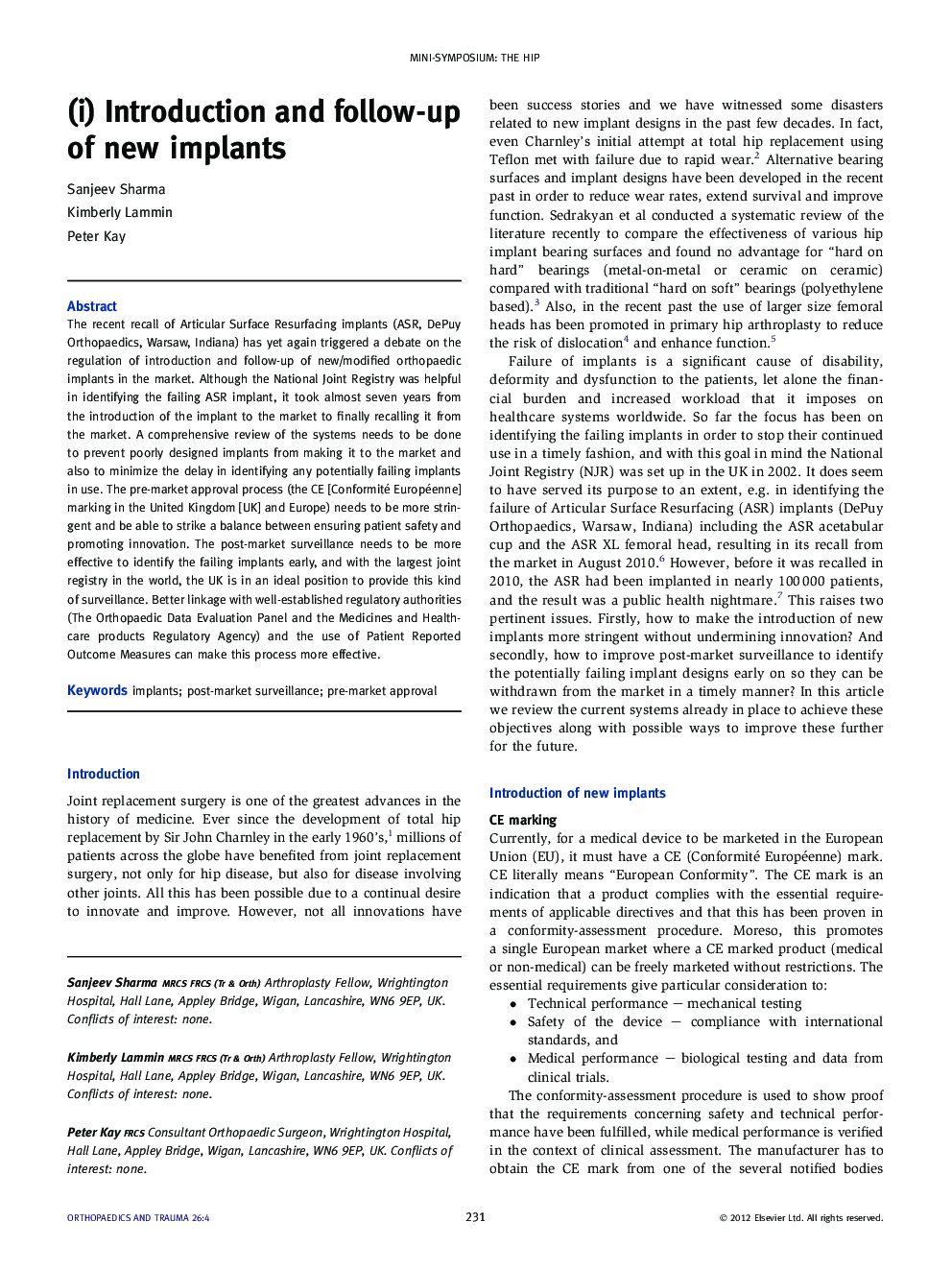| Article ID | Journal | Published Year | Pages | File Type |
|---|---|---|---|---|
| 10176292 | Orthopaedics and Trauma | 2012 | 6 Pages |
Abstract
The recent recall of Articular Surface Resurfacing implants (ASR, DePuy Orthopaedics, Warsaw, Indiana) has yet again triggered a debate on the regulation of introduction and follow-up of new/modified orthopaedic implants in the market. Although the National Joint Registry was helpful in identifying the failing ASR implant, it took almost seven years from the introduction of the implant to the market to finally recalling it from the market. A comprehensive review of the systems needs to be done to prevent poorly designed implants from making it to the market and also to minimize the delay in identifying any potentially failing implants in use. The pre-market approval process (the CE [Conformité Européenne] marking in the United Kingdom [UK] and Europe) needs to be more stringent and be able to strike a balance between ensuring patient safety and promoting innovation. The post-market surveillance needs to be more effective to identify the failing implants early, and with the largest joint registry in the world, the UK is in an ideal position to provide this kind of surveillance. Better linkage with well-established regulatory authorities (The Orthopaedic Data Evaluation Panel and the Medicines and Healthcare products Regulatory Agency) and the use of Patient Reported Outcome Measures can make this process more effective.
Keywords
Related Topics
Health Sciences
Medicine and Dentistry
Orthopedics, Sports Medicine and Rehabilitation
Authors
Sanjeev Sharma, Kimberly Lammin, Peter Kay,
